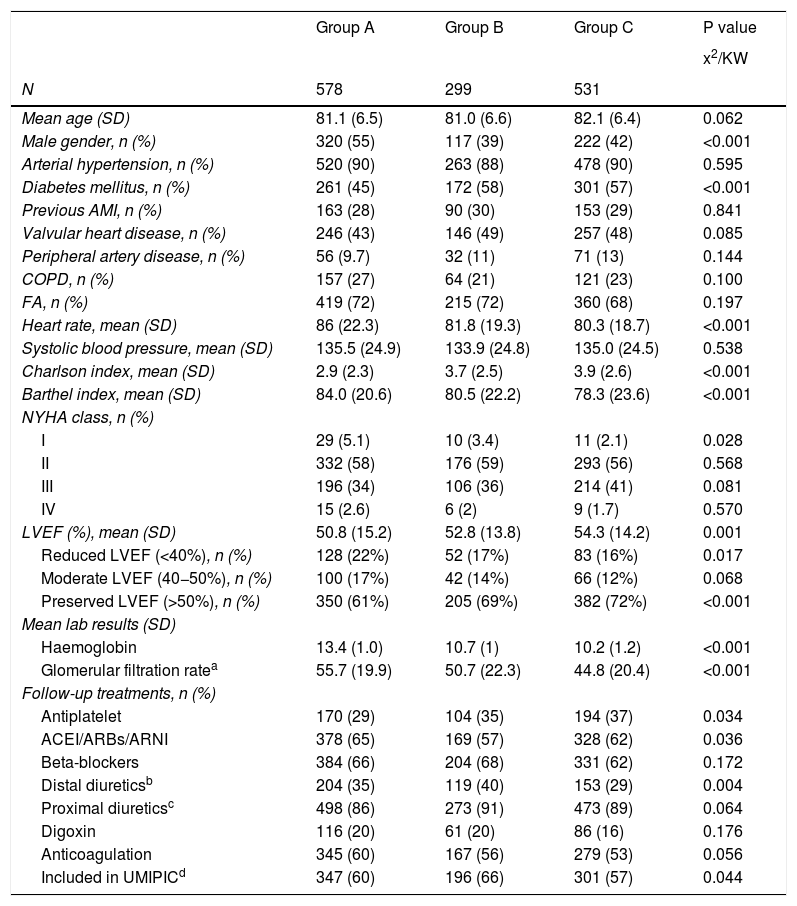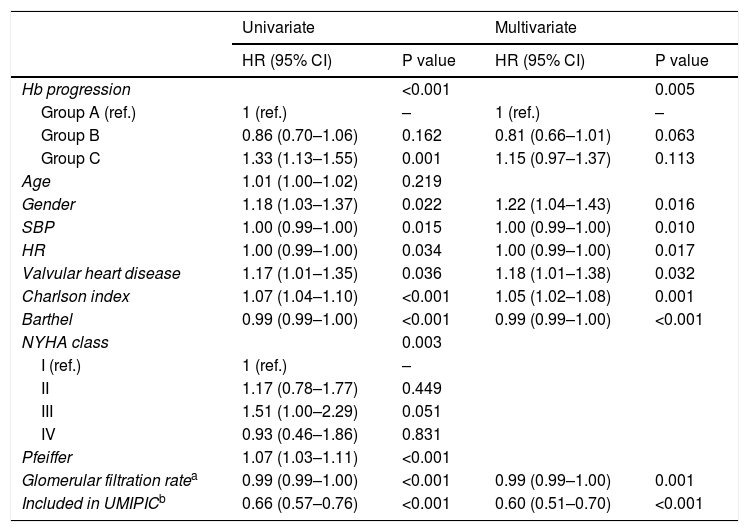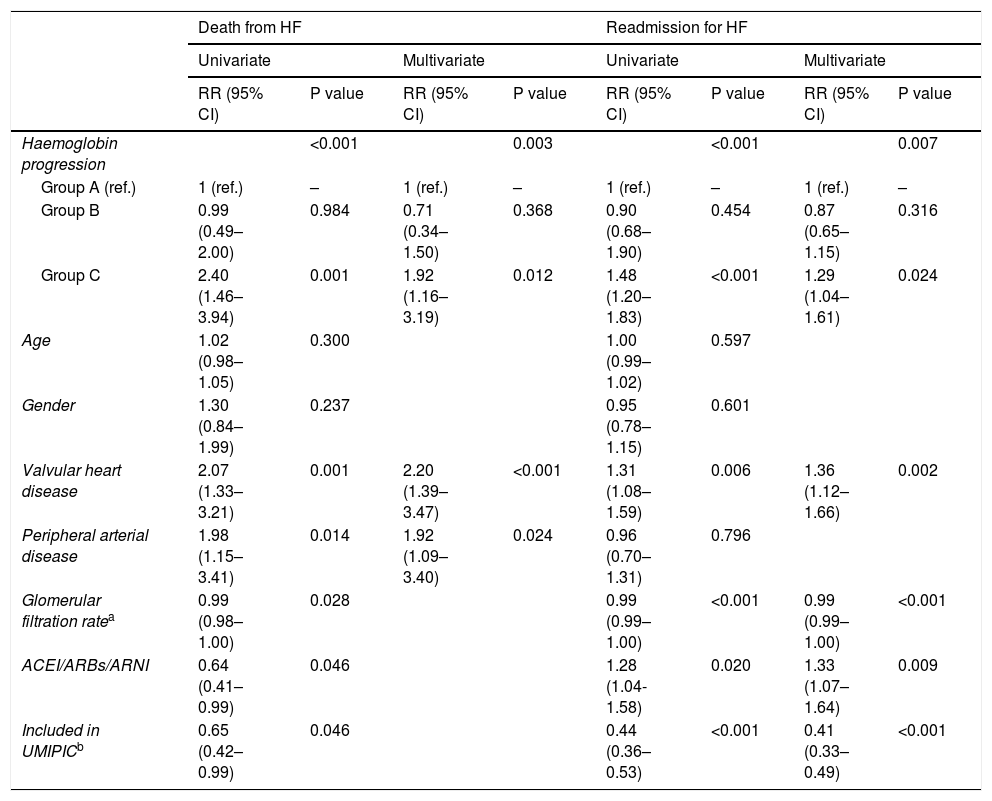To assess whether a sustained optimal haemoglobin value in the 3 months after admission for heart failure (HF) decompensation reduces morbidity and mortality during the 12 months after admission for acute HF.
Patients and methodRetrospective study of the 1408 patients older than 65 years included in the RICA registry divided into 3 groups: no anaemia (group A), recovered anaemia (group B), and persistent anaemia (group C), according to haemoglobin levels on admission, and 3 months after discharge. Kaplan-Meier curves were constructed, comparing the groups using the log-rank test and a Cox regression model was performed to analyse survival.
Results578 (41.1%), 299 (21.2%) and 531 (37.7%) were included in groups A, B and C, respectively. We recorded a total of 768 deaths and readmissions. There were 23 (4%), 12 (4%) and 49 (9.2%), (p = 0.001) individuals who died due to HF and 154 (27%), 73 (24%) and 193 (36%) (P < 0.001) admissions for this pathology, respectively. Patients with persistent anaemia had a higher risk of death (RR 1.29, 95% CI 1.04−1.61, P = 0.024) or readmission (1.92, 95% CI 1.16–3, 19; P = 0.012) due to HF.
ConclusionsPersistent anaemia in the months after admission for HF increases morbidity and mortality in the subsequent year.
Evaluar si un valor óptimo de hemoglobina sostenido en los 3 meses posteriores al ingreso por descompensación de insuficiencia cardíaca (IC) reduce la morbimortalidad durante los 12 meses posteriores a un ingreso por IC aguda.
Pacientes y métodoEstudio retrospectivo de los 1408 pacientes mayores de 65 años incluidos en el registro RICA divididos en 3 grupos: sin anemia (grupo A), anemia recuperada (grupo B) y anemia persistente (grupo C), según los niveles de hemoglobina en el ingreso y a los 3 meses tras el alta. Se construyeron curvas de Kaplan-Meier, comparando los grupos mediante la prueba de log-rank y se realizó un modelo de regresión de Cox para analizar la supervivencia.
ResultadosSe incluyeron 578 (41,1%), 299 (21,2%) y 531 (37,7%) en los grupos A, B y C, respectivamente. Registramos un total de 768 muertes y reingresos. Hubo 23 (4%), 12 (4%) y 49 (9,2%) (p = 0,001) individuos que fallecieron debido a la IC, y 154 (27%), 73 (24%) y 193 (36%) (p < 0,001) reingresaron por esta patología, respectivamente. Los pacientes con anemia persistente tuvieron un riesgo superior de fallecimiento (RR: 1,29; IC95% de 1,04–1,61; p = 0,024) o reingreso (1,92; IC95% de 1,16–3,19; p = 0,012) por IC.
ConclusionesLa anemia persistente en los meses posteriores a un ingreso por IC aumenta la morbimortalidad en el año posterior.











